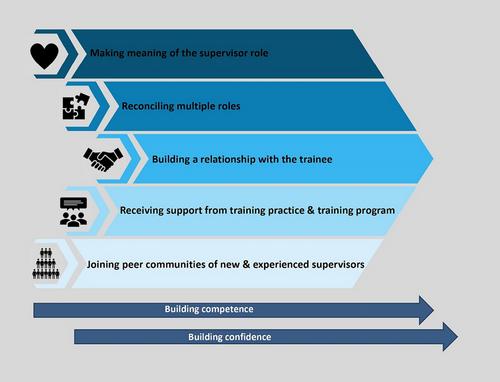Becoming a general practice supervisor: A longitudinal multi-case study exploring key supportive factors
Abstract
Introduction
Supervision of trainees in the health care professions is recognised internationally as core to safe and effective patient care. A supervisor workforce in general practice (GP) is critical to the profession and to the communities where they work and can be demanding as general practitioners incorporate workplace-based education and support of their trainees into their daily consulting work. Little is known about how this is experienced by new supervisors; therefore, this research sought to understand factors that play a significant role in the first semester of becoming a supervisor.
Methods
An exploratory multi-case study design was used; new general practice supervisors were the unit of analysis. Four data sources were captured longitudinally: semi-structured interviews at the beginning and end of the semester, audio diaries throughout and a mid-semester focus group. Template analysis was used, sensitised by a community of practice theoretical framework.
Results
Seven new supervisors participated. Five interdependent key factors played a significant role in general practitioners becoming supervisors: (1) making meaning of the role, (2) reconciling multiple roles, (3) building a relationship with the trainee, (4) receiving support from the training practice and the training programme and (5) joining peer communities of new and experienced supervisors.
Conclusion
Becoming a general practice supervisor is situated in the context of a workplace delivering clinical services, a training programme and personal life circumstances. It can be challenging and rewarding. Insufficient support may result in unintended attrition. Learning in this role is facilitated by enabling the new supervisor to find meaning in the role; structured allocation of time to engage effectively; a positive trainee–supervisor relationship; administrative support by practices; information, advice and remuneration from the training programme; and interactions with new and experienced supervisor peers.


 求助内容:
求助内容: 应助结果提醒方式:
应助结果提醒方式:


